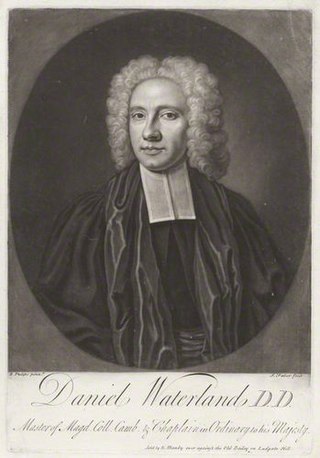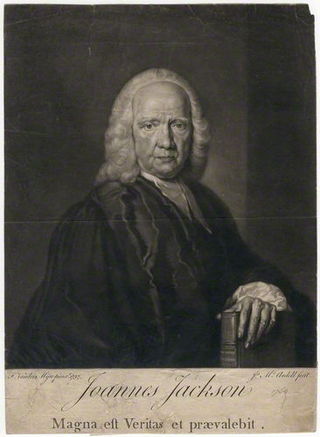The Boyle Lectures are named after Robert Boyle, a prominent natural philosopher of the 17th century and son of Richard Boyle, 1st Earl of Cork. Under the terms of his Will, Robert Boyle endowed a series of lectures or sermons which were to consider the relationship between Christianity and the new natural philosophy then emerging in European society. Since 2004, this prestigious Lectures series has been organized, with the assistance of Board of the Boyle Lectures, by the International Society for Science and Religion (ISSR) and has been held at one of its original locations, the Wren church of St Mary-le-Bow on Cheapside in the City of London.

Daniel Waterland was an English theologian. He became Master of Magdalene College, Cambridge in 1714, Chancellor of the Diocese of York in 1722, and Archdeacon of Middlesex in 1730.
David Jennings (1691–1762) was an English Dissenting minister and tutor, known also as the author of Jewish Antiquities.
GlocesterRidley was an English miscellaneous writer.
Samuel Bourn the Younger was an English dissenting minister. He was an English presbyterian preaching on protestant values learned from the New Testament. Through his published sermons, he entered the theological debate that flourished around the Arian controversy, and the doctrinal question as to Man's essential nature. He contested the Deism of the Norwich rationalists in the early enlightenment, and challenged the Trinitarian conventional wisdoms about the seat of humanity and its origins.
Brampton Gurdon was an English clergyman and academic, Boyle lecturer in 1721.

John Lewis was an English clergyman and antiquary.
William Harris, D.D. was an English Presbyterian minister.

John Jackson was an English clergyman and controversial theological writer.

Andrew Snape (1675–1742) was an English cleric, academic and headmaster, provost of King's College, Cambridge, from 1719.
William Berriman D.D. (1688–1750) was an English theologian, known as a Boyle Lecturer and controversialist.
John Berriman (1691–1768) was an English clergyman and poet.
Leonard Twells (1684?–1742) was an English cleric and theological writer.
Edmund Bateman (1704–1751) was an English cleric and academic, the Archdeacon of Lewes from 1737 until 1751.



